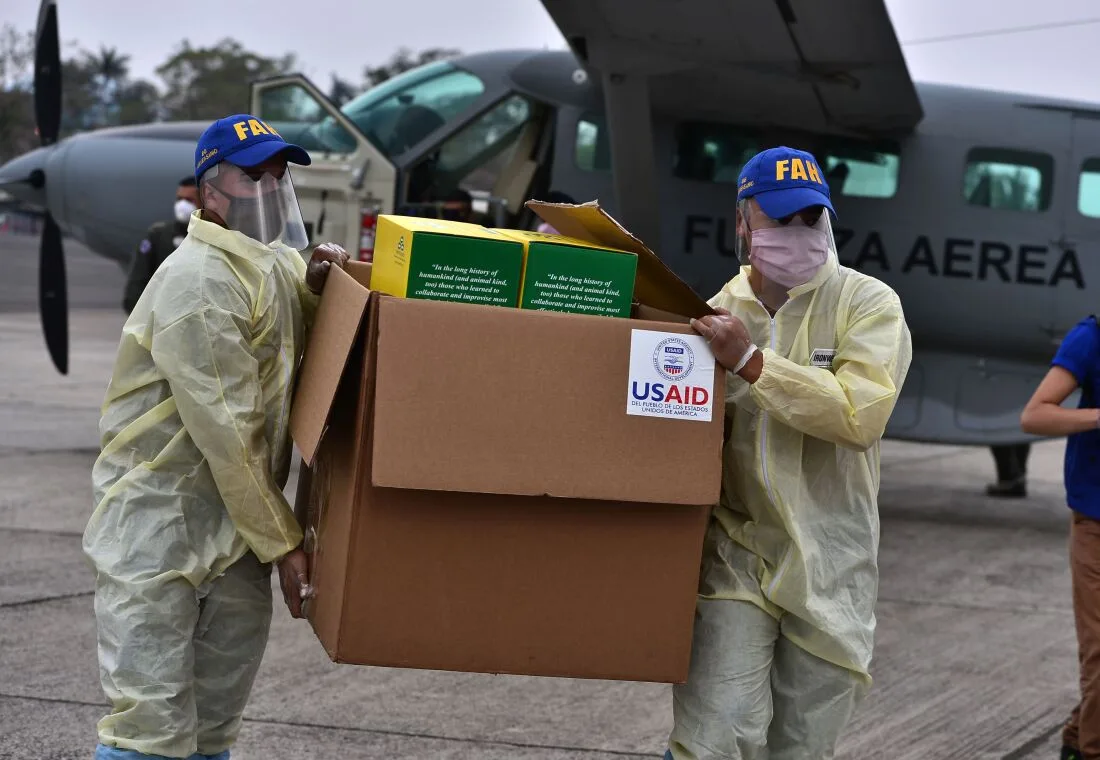The United States has provided Nigeria with $7.8 billion in foreign aids over the past ten years, supporting security, healthcare, education, and economic development.
According to data from the U.S. Foreign Assistance, the aid amounts increased over the years, peaking at $1 billion in 2023 before reducing to $783 million in 2024.
Join our WhatsApp ChannelBreakdown of U.S. foreign aid to Nigeria:
- 2015 – $446 million
- 2016 – $543 million
- 2017 – $643 million
- 2018 – $877 million
- 2019 – $761 million
- 2020 – $880 million
- 2021 – $922 million
- 2022 – $974 million
- 2023 – $1 billion
- 2024 – $783 million
U.S. Aid Cuts: What It Means for Nigeria
The decision by U.S. President Donald Trump to halt foreign aid to Nigeria and other countries raises concerns about the impact on Nigeria’s economy, security, and development. Experts warn that cutting U.S. assistance could affect critical sectors.
Security Support at Risk
The U.S. has been a key partner in Nigeria’s fight against Boko Haram and ISWAP. U.S. foreign aid has helped Nigeria through military training, equipment, and intelligence-sharing.
Speaking on the importance of U.S. security aid, a military analyst, Yusuf Abdullahi, said “The Nigerian government has relied on the U.S. for counterterrorism operations. If this aid is stopped, it will weaken security operations and leave the country vulnerable to more attacks.”
Impact on Healthcare
A large part of U.S. foreign aid supports Nigeria’s health sector, including HIV/AIDS treatment, malaria control, and maternal healthcare. Nigeria has the second-highest number of people living with HIV, and U.S. assistance helps provide life-saving drugs.

Dr. Chidi Okafor, a public health expert, said “The U.S. has played a major role in Nigeria’s fight against HIV/AIDS. Many patients receive free antiretroviral drugs through foreign aid. If this support is withdrawn, millions of Nigerians may lose access to treatment.”
Education and Scholarships
U.S. foreign aid has supported education initiatives, teacher training, and scholarships, particularly for marginalized communities and conflict-affected areas.
Professor Amina Suleiman, an education specialist, stated “The impact of U.S. aid on education in Nigeria cannot be ignored. Many children, especially in rural areas, have benefited from U.S.-funded scholarships and learning programs. A cut in foreign aid will mean fewer resources for education.”
Effect on Democracy and Human Rights
The U.S. has also funded civil society organisations promoting democracy and human rights in Nigeria. These groups work to strengthen democratic institutions, monitor elections, and advocate for human rights.
What’s Next?
The future of U.S. foreign aid to Nigeria remains uncertain. If aid continues to decline, Nigeria may need to seek alternative funding sources to sustain vital programs.
Many experts believe that Nigeria must develop long-term strategies to reduce its dependence on foreign aid and strengthen local funding for key sectors.
Emmanuel Ochayi is a journalist. He is a graduate of the University of Lagos, School of first choice and the nations pride. Emmanuel is keen on exploring writing angles in different areas, including Business, climate change, politics, Education, and others.

















